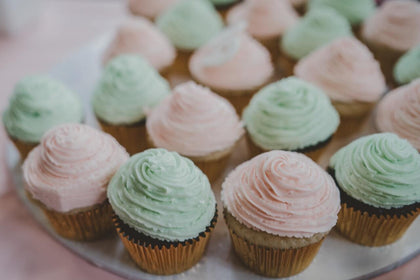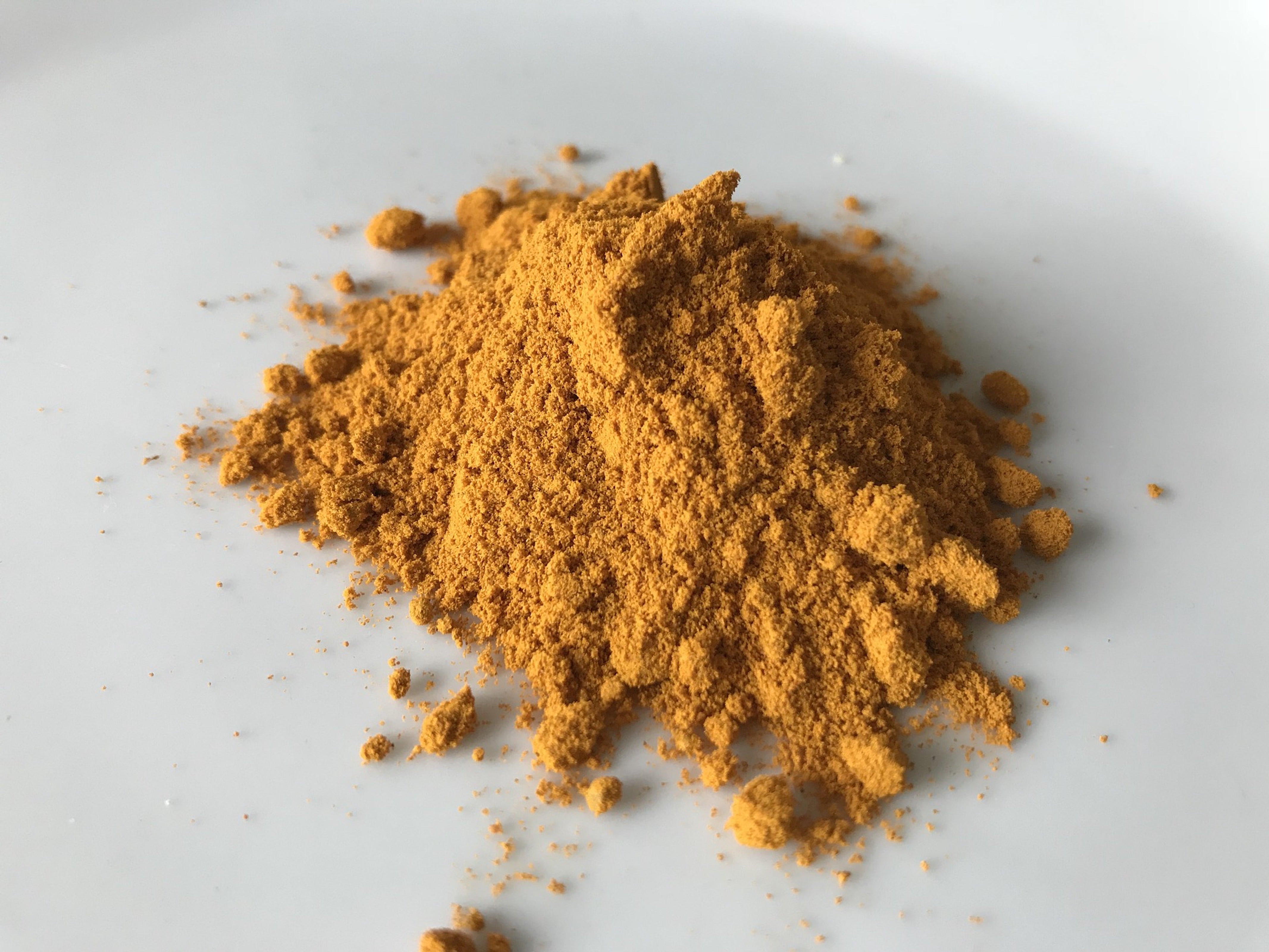Occasionally indulging in sugary treats can satisfy your desire for something sweet, but making it a frequent, liberal habit can have undesirable side effects.
It's no secret that excess sugar isn't good for your body, but can it also cause hair issues? Find out from the experts whether there's a connection between too much sugar and hair loss. Plus, discover the best products to use to combat thinning hair.
#include-related-slider#
How Sugar Impacts the Body
"Sugar (sucrose) is a type of carbohydrate. Excessive sugar intake can either directly or indirectly have a negative impact on weight, blood glucose control, insulin resistance, blood pressure and inflammation in the body," said Elizabeth Huggins, a registered dietitian and Certified Diabetes Care and Education Specialist at Hilton Head Health. "Excess sugar intake also makes controlling diseases such as polycystic ovary syndrome (PCOS) and type 1 diabetes more difficult."
While consuming a little added sugar does not necessarily have a detrimental impact on health, according to Huggins, excessive sugar consumption can increase the risk of various other conditions, including:
- Obesity
- Prediabetes
- Type 2 diabetes
- Non-alcoholic fatty liver disease (NAFLD)
- Sleep apnea
- Heart disease
- High blood pressure
"Nail, skin and hair health rely on consuming adequate nutrition in terms of macronutrients, micronutrients and antioxidants," said Huggins. "Excess sugar intake from empty calorie foods can result in low intake of quality foods. If the good stuff our body needs, like vitamin C, folate, zinc, iron and biotin, is missing from our diet, then our hair, skin and nails will fail to thrive. Chronic inflammation can also prevent tissues from thriving."
Related: Can Diabetes Cause Hair Loss?
Does Excess Sugar Trigger Hair Loss?
Maybe. Those with high blood sugar levels may experience scalp inflammation, along with fluctuations in hormone levels, which could result in increased hair shedding and/or loss caused by damage to hair follicles.
"Prolonged elevated blood glucose can cause inflammation, accelerating hair loss by decreasing quality and quantity of hair," said Dr. Rahman Mohammed, M.D., emergency medicine physician, CEO and co-founder of VivoDoc. Dr. Mohammed also said that elevated blood glucose levels could potentially dry out the scalp, leading to dandruff and damage to the hair follicles, which could contribute to hair loss.
Dr. Mohammed further explained, "As age progresses, metabolism decreases; if one doesn't have the right balance between the intake of carbohydrates and physical activity, it triggers the starting point for blood sugar elevation. Because hair is mainly protein and sugar is a carbohydrate, the lack of protein in the body from excess sugar consumption can lead to hair loss."
According to Dr. Mohammed, the following nutrients are essential for healthy hair growth:
- Vitamin D
- Vitamin E
- Magnesium
- Iron
- Copper
- Selenium
In addition to eating a nutrient-rich, balanced diet, you can support healthy hair by taking a daily supplement. Consider GRO Biotin Gummies for Hair, which contain zinc, folic acid and vitamins A, C, E and B-5, 6 and 12 to help beautify your strands and nourish your scalp. For an added boost, try GRO+ Advanced Hair Care Gummies with microencapsulated, full-spectrum hemp.
Shop: VEGAMOUR Best Sellers
You Are What You Eat
It's true: Eating habits can potentially accelerate hair loss. And maintaining a nutrient-dense diet is essential for your overall health, including that of your hair, as nutrition depletion can lead to hair thinning.
"Malnutrition of protein specifically causes hair loss and hair changes, including both in texture and appearance," said Sara Lutz, RD, and Wellory Nutrition Coach. "The amino acids cysteine and methionine are precursors for hair keratin synthesis. With that said, there is an indirect correlation between a diet high in simple sugars and increased hair loss. The increased sugar intake disrupts proper carbohydrate-lipid metabolism, which can lead to irritation and inflammation. A poor diet rich in simple sugars leads to improper glycemia and insulinemia, which can lead to increased ovarian androgens and decreased SHBG and IGF-1. This results in a greater risk of increased DHT binding to hair follicles, resulting in hair loss."
Related: The Best DHT Blockers to Grow Hair and Reduce Loss
Tress SOS: The Effects of Stress
Chronic stress takes its toll on both your hair and skin. When under physical or mental stress, the body produces more "fight or flight" hormones or adrenaline, causing an increase in blood sugar. Prolonged bouts of extreme stress can cause hair follicles to go into the telogen or resting phase and begin to shed.
"Stress causes our body to produce more of cortisol hormone that is linked to the production of glycation process," said Darya Rzaca, master esthetician, co-owner of Atelier Beauté. "Excess glucose in skin fibers triggers an internal reaction in which sugar molecules adhere to the collagen and elastin proteins, which normally keep our skin firm and flexible. Stress also may lead to overeating, specifically high sugar foods or drinks, as a coping mechanism. This high sugar intake can aggravate skin conditions such as acne, rosacea and eczema; it can also irritate the scalp, creating inflammation."
"Like our nails ... thinning, the same happens to our scalp! Too much sugar consumption can make your scalp very sensitive, itchy and even cause dandruff," said Marcela Correa, licensed medical pedicurist and owner of Medi Pedi NYC.
Use a scalp massager to treat yourself to a soothing, stress-busting self-care ritual, with the added benefit of improving blood circulation to your hair follicles. But that's not all a scalp massager is good for. You can also use it to work in hair serums, like GRO+ Advanced Hair Serum, which:
- 93% Had a clinically measured increase in hair density
- Up to 87% Reduction in hair loss*†
†Due to breakage from washing and combing
*Based on a 120-day independent, third-party clinical study with 40 participants using GRO+ Advanced Hair Serum once daily.
Shop & Save: GRO Hair Serum 3-Month Supply
Curb the Craving: How Much Sugar is Too Much?
"Carbohydrates constitute 50-70% of our diet, of which sugar should not exceed 10%," said Lutz. "The source of carbohydrates should be from brown rice, whole grain and seed bread and pasta, vegetables and fruits. In terms of added sugar, it is recommended not to exceed 150 calories of added sugar a day ( approximately 9 teaspoons)."
The American Heart Association recommends that women limit their consumption of added sugar to 25 grams or 6 teaspoons per day and men limit their daily consumption to 36 grams or 9 teaspoons.
Get in the habit of reading labels at the grocery store — you may be shocked at how much added sugar is listed as an ingredient on a surprising number of foods. Also, practice using the following visualization trick:
"Visualizing the amount of added sugar in a food may help you in determining whether a food item is a sensible option. Helpful visual reference: Every 4 grams of added sugar is equal to 1 sugar packet (about 1 teaspoon sugar)," said Huggins. "For example, if bottled tea states that it has 48 grams of added sugar, divide by 4 to get a visual image that the tea contains 12 packets of sugar."
Read: Try This DIY Coconut Oil Hair Mask for Nourished, Healthy Hair
#include-related-slider#
Focus on the Overall Health of Your Hair and Body
Improve your hair wellness and overall health by integrating these other ideas into your lifestyle:
- Include regular exercise into your schedule.
- Stay hydrated.
- Prioritize and practice self-care rituals.
- Maintain a balanced, nutritionally complete diet.
- Minimize stress with meditation, yoga and mindfulness.
- Incorporate scalp and hair care into your morning and nighttime routines.
- And when in doubt about any hair, skin or scalp concerns, schedule a consultation with a dermatologist or trichologist.
Prioritizing yourself and your wellness is the first step to getting the thick, beautiful hair you want. And VEGAMOUR is here to help you along the way.
More From VEGAMOUR
- How to Handle a Mature Hairline
- 5 Tips If Your Eyebrows Are Thinning
- Excessive Exercise & Hair Loss
- Red Clover for Hair Growth Explained
Photo credit: Rod Long/Unsplash
Back




















